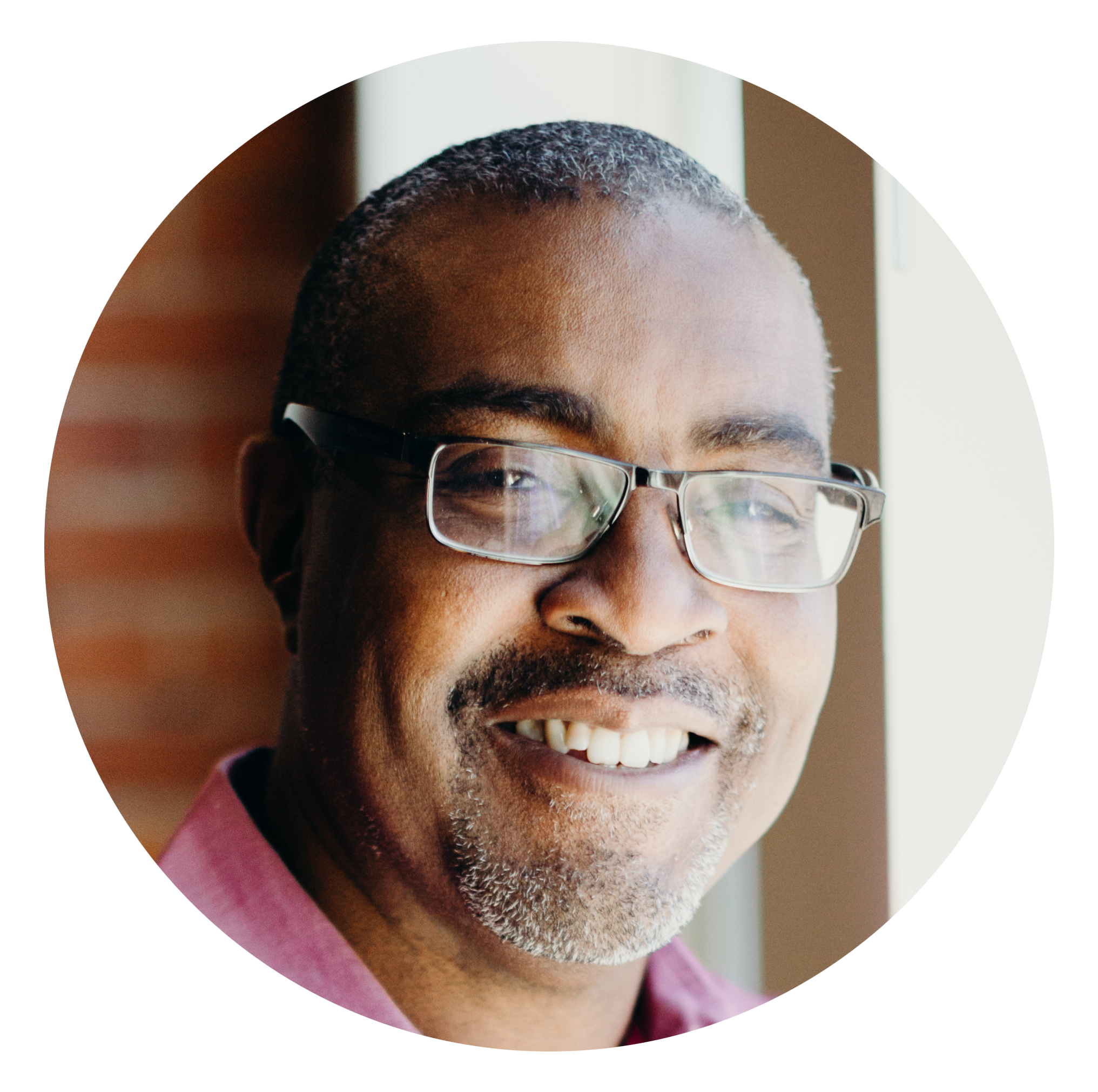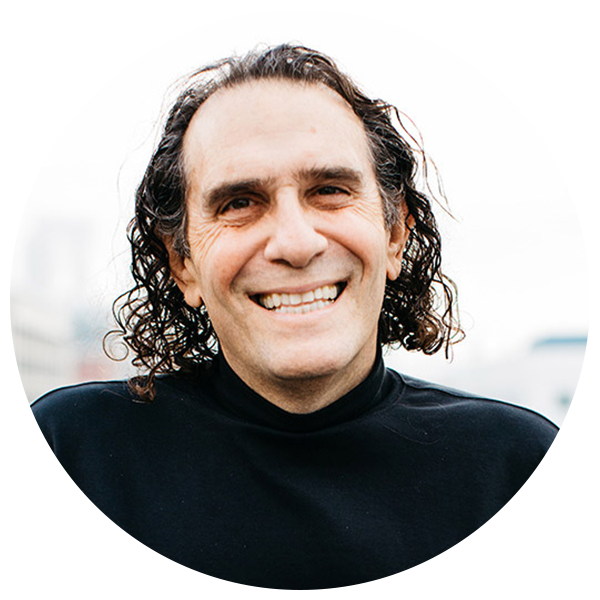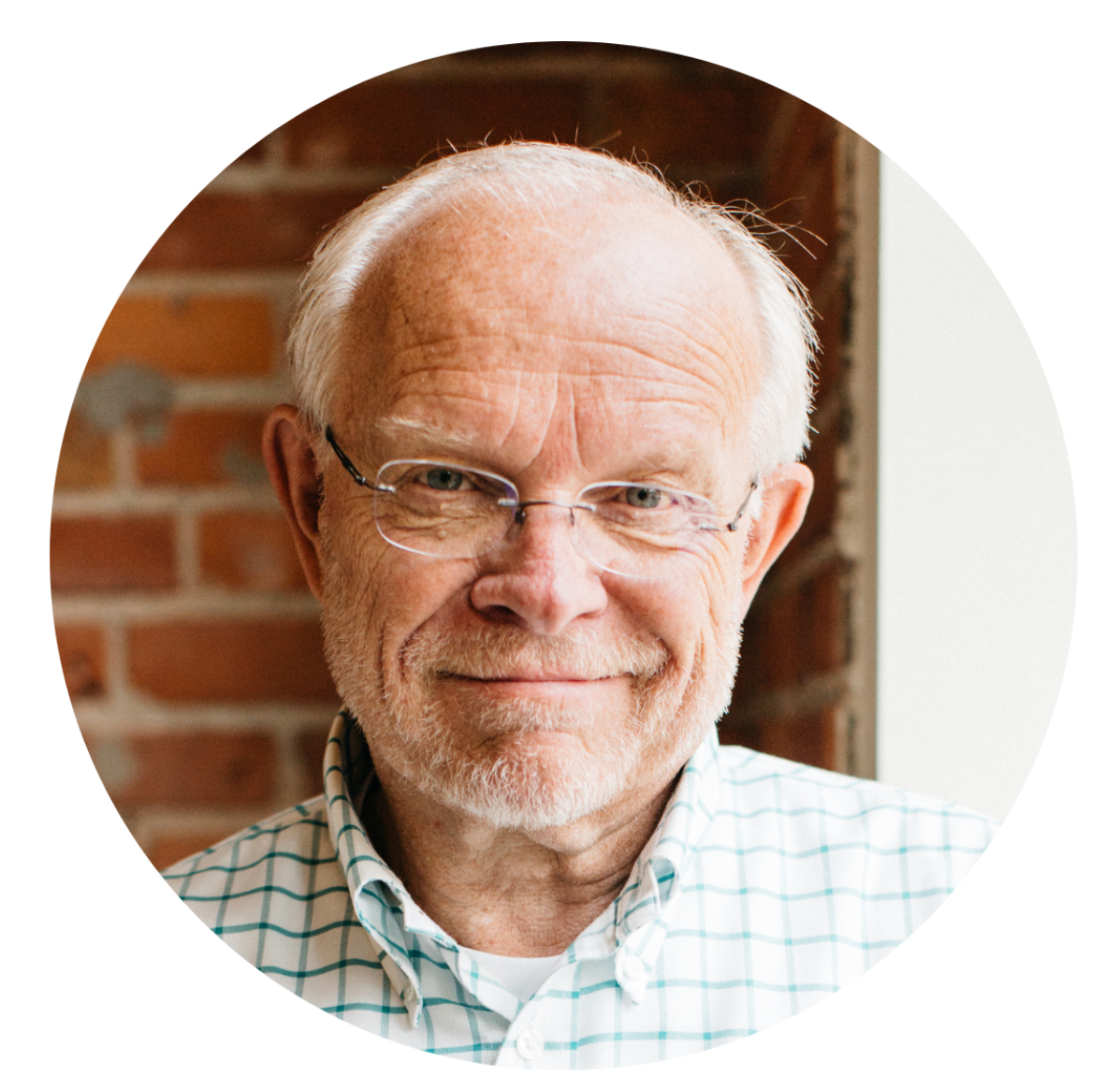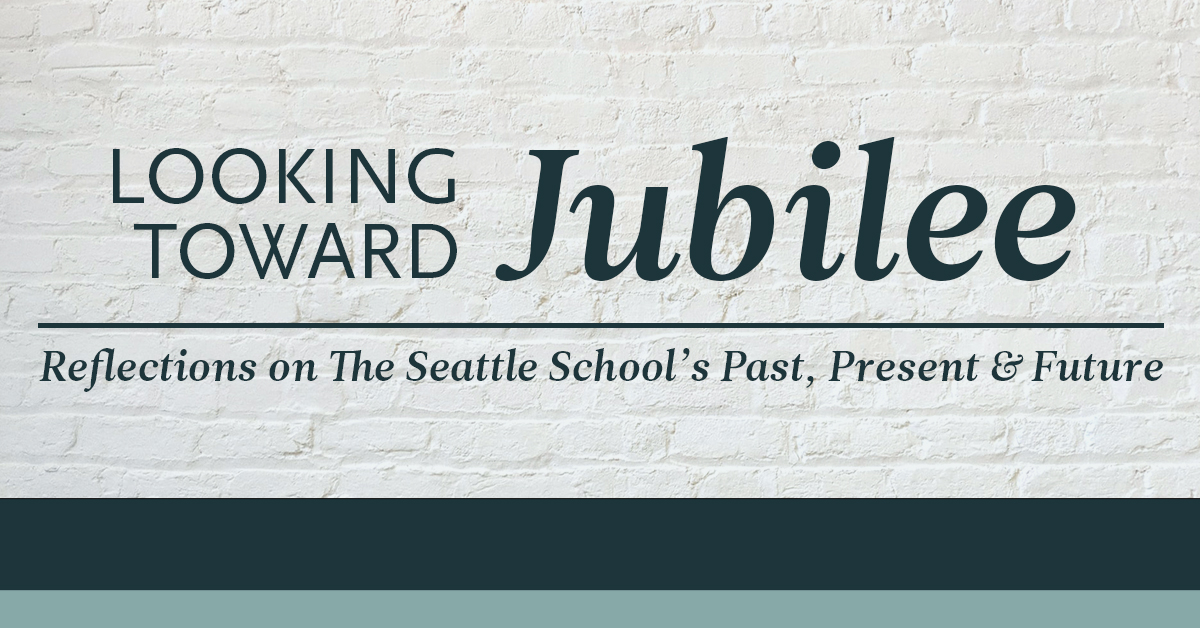In celebration of our 25th year as an institution, Dr. J. Derek McNeil, President and Provost of The Seattle School of Theology & Psychology, invited Dr. Dan Allender, founding President and Professor of Counseling Psychology, and Dr. Keith Anderson, President Emeritus, into a conversation on the past, present, and future of our calling and community. Listen as they describe the original hopes and dreams from our founding days and the continuing values of engaging in discourse, scripture, and stories. In this miniseries so far, the three leaders have discussed the dreams of the founding days, the challenges of living into discourse in the present, and the hopes for the future as we look toward Jubilee.
In this fourth and final podcast of the series, Derek asks Dan and Keith to give blessings and speak into the school as we go forward into the next 25 years.
Our host for this miniseries:

Dr. J. Derek McNeil started at The Seattle School in 2010 as Senior Vice President of Academic Affairs before becoming the fourth President of The Seattle School in 2019. Since joining the institution’s leadership team, Dr. McNeil has been integral to our achievement of regional accreditation, the reimagining of our curriculum and degree programs, the securing of millions in grant funding, and the launching of Center for Transforming Engagement. Prior to his tenure at The Seattle School, he served as faculty in the PsyD program at Wheaton College Graduate School for over 15 years. Dr. McNeil has worked as a clinician in private practice, a diversity advisor, an organizational consultant, and an administrator. His research, writing, and speaking have focused on issues of ethnic and racial socialization, the role of forgiveness in peacemaking, the identity development of African-American males, leadership in living systems, and resilience.
Our guests for this miniseries:

Dr. Dan Allender co-founded The Seattle School of Theology & Psychology to create new training at the intersection of psychology, theology, and culture in order to equip people to serve more effectively in the dynamic contexts of the 21st century. From 2002-2009, Dr. Allender served as the first President of what was then known as Mars Hill Graduate School, navigating the young institution through crucial formative years and transitions. Guided by the support and leadership of The Seattle School, in 2011 Dan Allender, Becky Allender, and Cathy Loerzel founded the Allender Center to steward the legacy of his unique and innovative methodology for the healing of trauma and abuse. He hosts the podcast for the Allender Center and continues to teach in the classroom and at conferences. Dr. Allender is the author of multiple books, most recently Redeeming Heartache co-written with Cathy Loerzel. Before founding The Seattle School, he previously taught at Grace Theological Seminary and Colorado Christian University.

Dr. Keith Anderson first joined The Seattle School as Academic Dean in July 2006. In May 2009, he became the school’s second President, succeeding Dr. Dan Allender, a role he held until his retirement in October 2017. During Dr. Anderson’s tenure, The Seattle School received full accreditation from the Association of Theological Schools, added new faculty and staff, and launched the Allender Center. Prior to The Seattle School, Dr. Anderson had held roles in ministry and in academic administration at Northwestern College, Bethel University, and the University of Sioux Falls. He is the author of multiple publications including Reading Your Life’s Story: An Invitation to Spiritual Mentoring.
Resources:
- Our mission of training people to be competent in the study of text, soul, and culture to serve God and neighbor through transforming relationships is embodied in our graduate school, the Allender Center, and the Center for Transforming Engagement. Our commitment to provocative, challenging, nuanced Christian writing is held in the twice-yearly print and digital journal The Other Journal and also the regional journal Christ & Cascadia.
- Check our out 25-Year Anniversary page and our story and visual timeline to join us in this season of looking back and looking ahead.
Episode transcript:
Podcast Introduction: Welcome to the Seattle School Podcast, where we hold conversations at the intersection of text, soul, and culture. The Seattle School of Theology and Psychology is a graduate school and seminary in Seattle, Washington, on a mission to train artists, pastors, therapists, and change-makers to join God in the restoration of their communities through transforming relationships. In celebration of our 25th year as an institution, Dr. J. Derek McNeil, President and Provost of The Seattle School, invited Dr. Dan Allender, Founding President and Professor of Counseling Psychology, and Dr. Keith Anderson, President Emeritus, into a conversation on the past, present, and future of our calling and community. Listen in as they describe the original hopes and dreams from our founding days and the continuing values of engaging in discourse, scripture, and stories. In this episode, Derek, Dan, and Keith give blessings as we go forward into the next 25 years. Thank you for listening and we hope you enjoy this conversation between Derek, Dan, and Keith.
Derek: Well, we’re coming close to our, this is, I call this an initial conversation. What do you want to say into the school as maybe a blessing? My father, I appreciated him so much. He took every moment he had to bless his grandchildren and he would name each one. And he knew them well enough to say, Hey, this is what I hope for you. This is what I want for you. This is what I want the future to be for you. And so he would go up and down the line and misname each one. And I’d love before we got off, but the two of you to take a moment and name some things that you want to speak into us as part of your–not living legacy, if you will–part of your life with us.
Dan: Well, I, I’ll begin by saying that, as it’s been stated in other cases, my presidential place was accidental. But the reality is we had the immense privilege of being able to pass the presidency on to, truly, a man of such incomprehensible goodness. And that is Dr. Keith Anderson. And for him to be able eventually to pass it on to you, Dr. McNeil, it is one of the legacies of the school that is remarkable leadership in the midst of the kind of humility, the kind of madness, the kind of labor that’s required. And so one of the things I would say is may the passage of this school in the years to come, continue to have leaders like the two of you, and indeed enough of a sense of the reluctance and accidentalness of my own leadership that the intersection of great competence, great character, and great accidents, may that be one of the benefits of our lives as it passes on into the institution in the future.
And then the second thing is, again, a kind of epistemic humility. We have something to offer, but we have so much more to learn. And I certainly know that from the dreams of a young 45-year-old to now 25 years later, the amount of boldness bound to hubris is in some sense heartbreaking. But also I’m very, very proud of the founders who began and the founders who came soon thereafter, and then the new founder founders. I hope the school is always being founded, and that 50 years from now that there will be the sense that you are called to create what is central to living out the gospel in this day. And if we have leaders like the two of you and a heart to found itself again and again, I think the next 25 years, which I indeed don’t plan to be around for, but nonetheless commend and say that there is a future for this institution.
Derek: Amen. Thank you.
Keith: Yeah. Who knew? Who knew we’d be talking about Jubilee, you know, instead of talking about can we make it through the next budget cycle? Can we make it to the next, whatever, the next semester almost. But, yeah, one of the things that, one of the main things that I would want to say is Abraham Heschel, one of the great Old Testament scholars, a Jewish rabbi, a man who looks more like a rabbi than anybody should, and he’s got this huge beard and these fierce, intense eyes as he looked out. He said the entire of scripture for him, the Old Testament for us. But the entire essence of the scripture could be summarized in one word: Remember, remember, remember what God did in taking us from, and through the Red Sea and to the Promised Land. And for me, it is, one of the reasons why we need to keep returning to the founding vision and returning to those founders who had that kind of bold anointing, I think, is because I’m utterly convinced that you all, Dan, were given an anointed mission. Now, I don’t know how it all came about. I don’t know if it felt anointed at that point or if it felt like some evening around pizza and whatever else. Who knows. But there is something that is, I want to say to the school is remember the mission: text.soul.culture. To my ears that is gospel, and,I went to a text seminary, and so we talked about was how my voice was going to be heard through preaching, through hermeneutics, through systematics and all that. I value all of that. But soul.culture, it’s not one of those, where you get to pick one of those. It’s this sacred collision between all three of them, if you will. And it’s, so there’s that, it’s remember, remember, remember the mission, remember that this is truly anointed by God, and if there’s going to be a jubilee, it’s going to happen because that gets remembered. And metabolized in the lives of everyone going forward.
So there’s a part of me that also wants to say: stay the course on the things that are so foundational in the truest sense. There are a lot of things that are sand and not rock. And part of the role of the coming leaders in The Seattle School will be to figure out, first of all, what time is it? Good leaders know that they have to figure out what time is it in the culture, in the life of the organization or the movement or institution. And also what time is it in our larger context in North America and in how we try to relate to the rest of the world. So there’s a part of it, I want to say: stay the course.
We haven’t always done that. We all know that. Others know that. We know that we’ve zigged off the trail sometimes and we need to get zigging back onto the trail or zagging, I don’t know which. But there’s something about staying the course in the ways that we have just honored story, honored the narrative. Dan’s teaching on this is beyond profound. You are a story. You’re not a compendium of thousands of unrelated random stories. You are a story and God is co-writing that story, or you and God are co-writing that story. So if that’s the case, can we practice that going forward?
Derek: Amen. I love both the sense of journey narrative. The constraint that leads to freedom Who we are. The constraint that leads to freedom. Thank you both. This has been a lovely conversation. We’ll do it again. And I appreciate the gifts you have given and given your lives to and how you’ve seeded into us and continue to do so. And in some ways a blessing forward. We will need that blessing as part of our story forward. These are the things that hold us in rough water. And so thank you both.
Dan: Our privilege. My privilege, it’s good to be with you. And I look forward to the next field trip that the three of us get to take.
Derek: Will do.
Keith: As do I. Bless you both.
Derek: As well.


